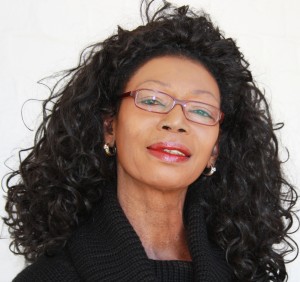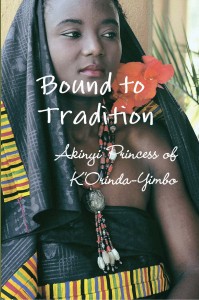An Interview with Akinyi Weiniger von K’Orinda-Yimbo: Author, Journalist & Instructor
Sylvia: Hi Akinyi, it is such a pleasure to interview you. Please give our readers a brief introduction of yourself and a little about your book.
 Akinyi: Born on the shores of Lake Victoria in Kisumu, the capital city of Luoland, Kenya, to the Luo royal houses of K’Orinda and Yimbo; then I was sent to a public school in Yorkshire, England, when I was nine. I’m a graduate journalist – the London Schools of Journalism as well as an economics graduate of the London School of Economics with firsts. I moved to Bavaria, Germany, where I studied Germanistics and German specific economics. Been writing as a freelance journalist since 1980, columnist with various dailies and monthly magazines in Africa and Europe. Give lectures and seminars in various German universities, colleges and high schools on topics ranging from socio-economy in Africa, Business English, African literature and the socio-ethnological conflicts in the traditions of Africans and Europeans in particular, and the West in general.
Akinyi: Born on the shores of Lake Victoria in Kisumu, the capital city of Luoland, Kenya, to the Luo royal houses of K’Orinda and Yimbo; then I was sent to a public school in Yorkshire, England, when I was nine. I’m a graduate journalist – the London Schools of Journalism as well as an economics graduate of the London School of Economics with firsts. I moved to Bavaria, Germany, where I studied Germanistics and German specific economics. Been writing as a freelance journalist since 1980, columnist with various dailies and monthly magazines in Africa and Europe. Give lectures and seminars in various German universities, colleges and high schools on topics ranging from socio-economy in Africa, Business English, African literature and the socio-ethnological conflicts in the traditions of Africans and Europeans in particular, and the West in general.
I’ve written and published articles, papers, books and a novel in German: Khiras Traum. I also published my two novels, “Bound to Tradition” and its sequel “The Separation.” My non-fiction book “Darkest Europe and Africa’s Nightmare: A critical Observation of the Neighbour Continents” published in 2008 by a New York publisher. Bound to Tradition came out in Nov 2010 in the USA. The AuthorMe.com Group judges have just nominated my work, THE PROPOSAL, and submitted it for the 2012 Caine Prize which will be announced in April 2012 in London. In addition, I speak seven languages and live in Bavaria with husband and son.
Sylvia: Wow, very interesting! What inspired you to write your leadership book?
Akinyi: This was a personal and private experience that affected the relationship between me and my husband, so in a way Bound To Tradition is largely autobiographical. My short story, The Proposal, which I culled out of Bound to Tradition, has been nominated for the 2012 Cain Prize which will be announced this month.
Sylvia: Is there a message in your book that you want readers to grasp?
Akinyi: That we may look at others outside our culture with cultural spectacles but we should never judge their culture with the same  cultural specs. And that cultural bias need not be relegated to one cultural group or one corner of the world – it’s universal.
cultural specs. And that cultural bias need not be relegated to one cultural group or one corner of the world – it’s universal.
Sylvia: Do you have any advice for other writers?
Akinyi: Keep on writing because that’s what you live for, cry for and pull out from that place inside you that only you can comprehend.
Sylvia: Why should we buy your book?
Akinyi: This is a book that’s unique in itself for the reasons I state above. But even more important, readers have not many authentic writers of continental African books, so that the books normally slip off their radar before they even sense it.
Sylvia: Is there a special place that you prefer when you write?
Akinyi: Well, we’ve turned two rooms in the house into offices and mine has a huge French window through which I stare for miles into the dark Black Forest. It both calms me and gives me ideas. The very best is of course going for a long walk in the forest – alone.
Sylvia: What is your POWER WORD? Why this word? (A power word is a word that has great effect to the person hearing or reading it. My power word is EMPOWER)
Akinyi: Banking, lately. I work hard for my euros and when they turn that to soap bubbles, I still have the bills to pay – double, because I’m forced to pay for theirs as well. And there’s no way I can say NO, TAKE CARE OF YOUR OWN SELF, I’M KEEPING MY MONEY. Simply because I’m a humble taxpayer!
Sylvia: Tell me about a special moment as an author?
Akinyi: Well I remember I was invited to read over Christmas at a Seniorenresidenz (a residence for seniors) as we prefer to call them here in Germany. And there I had up to three generations of one family from 7 to 70, all packed in a dance hall to listen to my views. Then a lady asked me if we also have Christmas in Africa (the western world tends to think of Africa as one land, not a continent). I told the gathering Africa celebrated Christmas since the Copts in Ethiopia and Egypt in the 1st century. Christianity is Afro-Orient, not “European”. We had a lovely long discussion ranging from Europe never having ever had a religion that became a world religion to the Lalibela Cross and monolithic churches in Ethiopia. Lots of Ahhhhhs. That’s what I meant at the beginning of this interview – the cultural specs we keep on our noses can be hindrances so that we refuse to see what’s right there on that very nose.
Sylvia: Akinyi, thank you! Please share your contact information:
Akinyi: My pleasure Sylvia. My contact information is below:
Website: www.akinyi-princess.de
Book Order: http://akinyi-princess.de/326/Home/Book_Order.html

Sylvia Browder is CEO of Specialty Home Services LLC, a Home Improvement Company; a Small Business Consultant at Browder Consulting Group, a startup consultancy firm to help women with startup assistance, marketing, website and graphic design work and other support services. In addition, she has co-authored several published books; publisher of ‘Sylvia Browder’s Blog for Women Entrepreneurs’ a lifestyle blog; and publisher of ShopSpendBlack.com Business Directory & Blog platform created to help consumers find black owned businesses in a searchable format. In her spare time, she enjoys spending time with her husband of 30 years; 5 adult children and 5 grandchildren; church; friends and motorcycle riding.

















